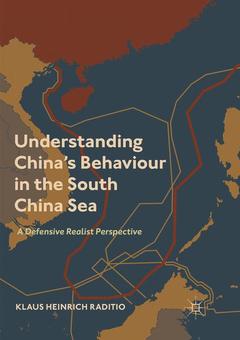Understanding China’s Behaviour in the South China Sea, 1st ed. 2019 A Defensive Realist Perspective
Auteur : Raditio Klaus Heinrich

Date de parution : 12-2018
Ouvrage de 209 p.
14.8x21 cm
Date de parution : 09-2018
Ouvrage de 209 p.
14.8x21 cm
Thème d’Understanding China’s Behaviour in the South China Sea :
Mots-clés :
South China Sea; Security in South China Sea; Defensive Realism; China & International Law Constrain; Chinese Exceptionalism; Defensive Realism and International Law; Sino-US Rivalry in the South China Sea; China’s Defection in the South China Sea; China's Reassurance Policies in the South China Sea; Non-military solutions for South China Sea dispute; Defensive Realist State; China’s Defensive Realist Behaviour; China as a Defensive Realist State; Geopolitics & South China Sea; Security & South China Sea; The UNCLOS Tribunal Ruling and South China Sea; The Arbitration Process and South China Sea; The Award of the Tribunal and South China Sea



